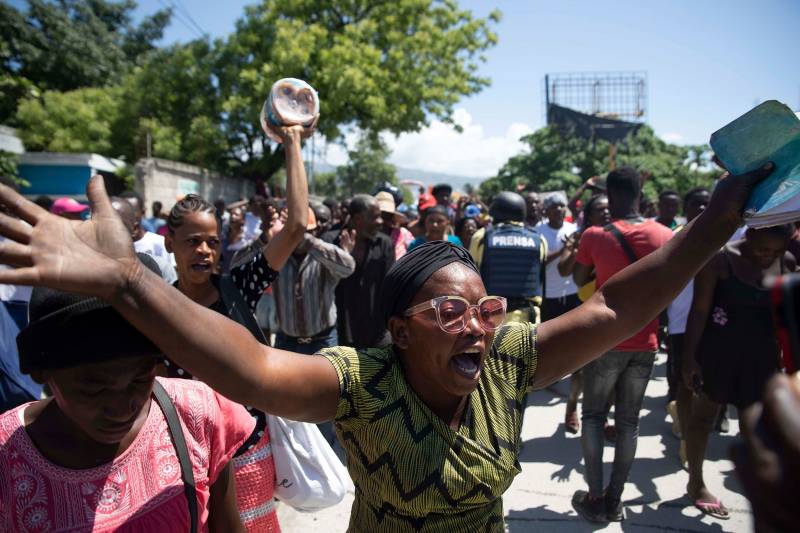Over the weekend, approximately 200 people were killed in Haiti’s capital, Port-au-Prince, with a massacre in the Cité Soleil neighborhood accounting for many of the deaths. A gang leader reportedly targeted Vodou practitioners, believing that they had cast a spell causing his son’s illness. According to the Committee for Peace and Development (CPD), the gang identified victims in their homes, bringing them to the gang leader’s stronghold for execution. This tragedy highlights the pervasive violence plaguing the nation.
The UN rights commissioner, Volker Türk, reported that at least 184 people died in the violence, raising the death toll in Haiti this year to an alarming 5,000. The CPD and UN confirmed the massacre occurred in Cité Soleil, a neighborhood already afflicted by gang dominance. Many of the victims were elderly or Vodou practitioners, with some younger individuals killed while trying to save others. The attack underscores the unchecked brutality of gangs in Haiti.

Massacre in Haiti as Gang Violence Targets Vodou Practitioners Amid Escalating Humanitarian Crisis
Haiti has long faced instability, but the violence had escalated significantly since February when armed groups launched coordinated attacks in Port-au-Prince in an effort to unseat then-Prime Minister Ariel Henry. Currently, gangs control 80% of the capital, despite international efforts, including a Kenyan-led police mission backed by the US and UN. The ongoing violence has exacerbated the humanitarian crisis, leaving over 700,000 people displaced, half of whom are children.
The CPD described the aftermath of the recent massacre, with reports of mutilated and burned bodies left in the streets. These acts of violence are part of a broader crisis fueled by political instability and gang control. Vodou practitioners have historically faced persecution, reflecting deeper cultural and religious tensions in Haiti. The religion, integral to Haitian identity, was only officially recognized in 2003 and remains misunderstood and marginalized.
This tragic event highlights Haiti’s growing humanitarian and security challenges. With international efforts struggling to curtail violence and a large portion of the population displaced, the situation demands urgent attention. The massacre also sheds light on the deep-seated cultural tensions and the vulnerability of marginalized groups, such as Vodou practitioners, in the face of rising gang violence and societal instability.
